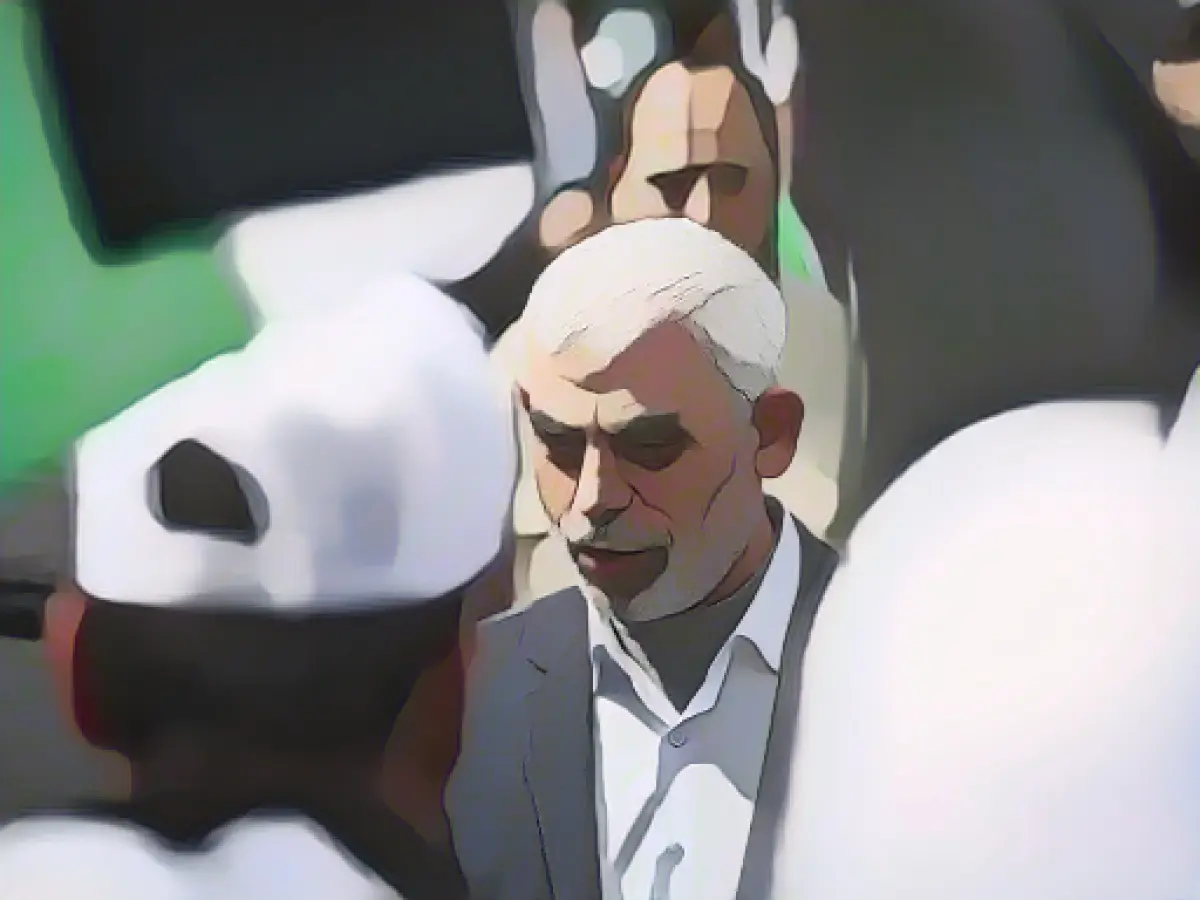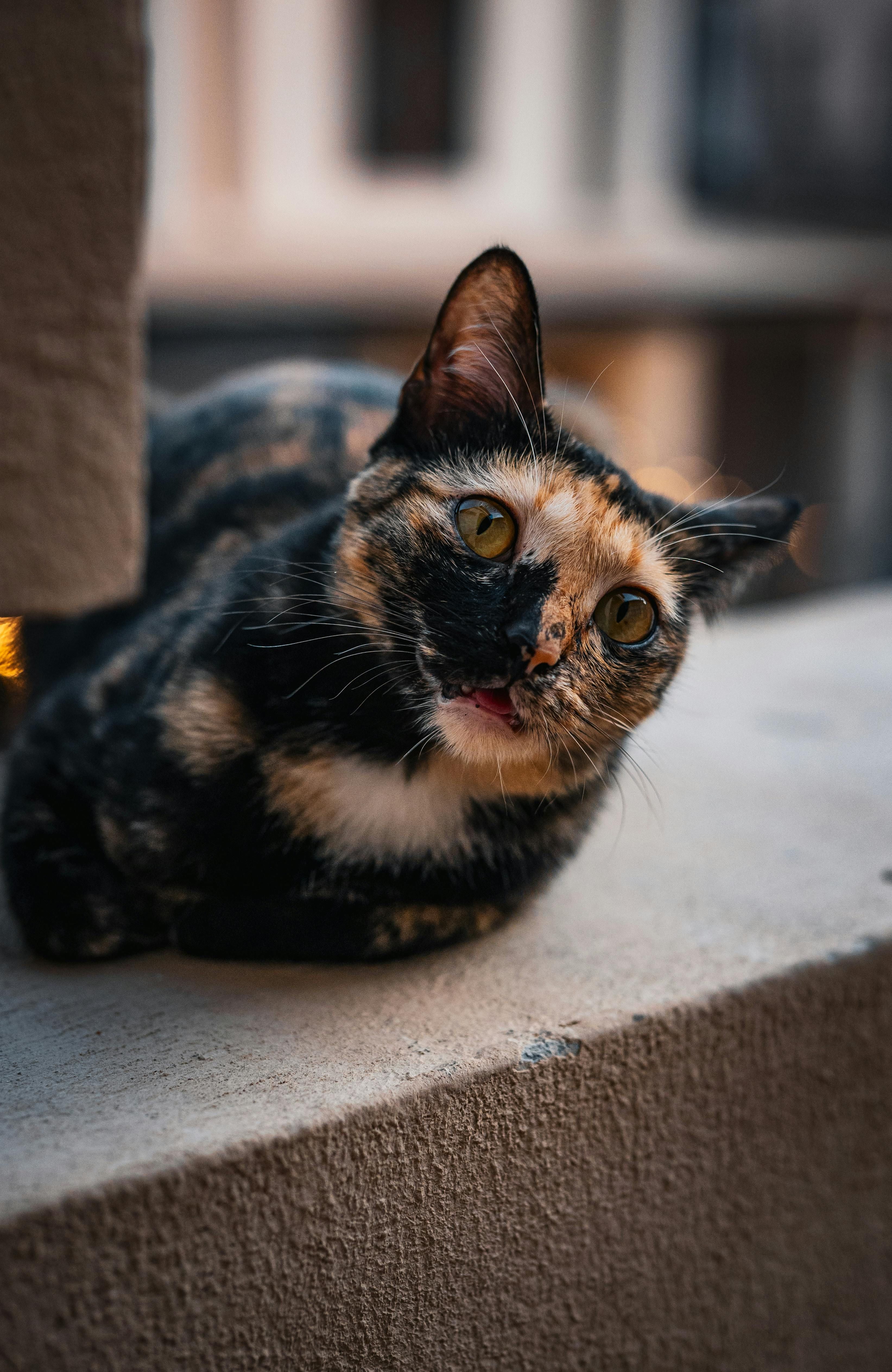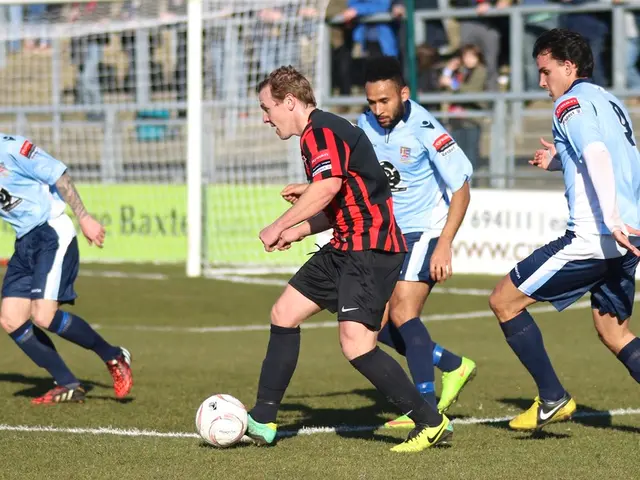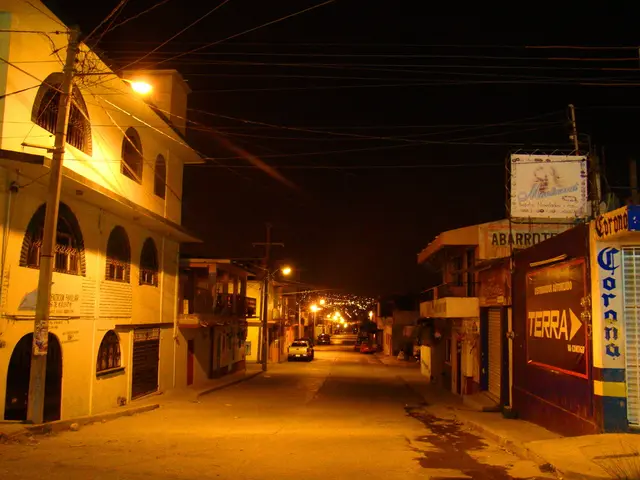Title: "Jihia al-Sinwar: The Controversial Hamas Chief"
This infamous figure has become a center of attention: Jihia al-Sinwar, the Islamist Palestinian leader of the Gaza Strip's Hamas organization. Israeli Prime Minister, Benjamin Netanyahu, publicly declared that al-Sinwar and others responsible for the October 7 massacre were marked for death. Al-Sinwar, along with Mohammed Deif, the commander of Hamas's armed wing, is believed to have orchestrated the shocking attack that claimed the lives of over 1,200 Israelis.
Born in 1962 in Chan Junis refugee camp in the Gaza Strip, Sinwar hails from the initial generation of Hamas. During the late 1980s, Hamas was established as the resistance against Israeli occupation. Sinwar played a significant role in forming Hamas’s military arm, the Qassam Brigades.
In the early stages of Hamas, al-Sinwar was notorious for his ruthlessness against suspected collaborators within the organization. Earning him the chilling nickname "Butcher of Chan Junis," he demonstrated an alarming level of brutality, which ultimately led to internal conflicts within the Middle East.
Al-Sinwar spent two decades imprisoned in Israel, during which he became an avid observer of Israeli society. He would spend hours studying resources on prominent Zionist and Israeli figures, including former leaders Menachem Begin and Izchak Rabin. He believed that understanding the enemy was crucial, which evidently shaped Sinwar's strategic planning.
Released in 2011, Sinwar was part of a prisoner exchange that freed over 1,000 Palestinians, including an Israeli soldier, Gilad Shalit. Sinwar's brother was reportedly involved in Shalit's kidnapping. This exchange was heavily criticized by Netanyahu.
Following his release, Sinwar was responsible for the liaison between Hamas's military and political arms. In 2017, he ascended to the position of Hamas leader in Gaza, a position he has wielded since, trying endlessly to dismantle Israel's blockade of the Gaza Strip, which has been in place since 2006.
Despite Hamas's extreme charter calling for the destruction of Israel, al-Sinwar has occasionally taken more pragmatic stances. In 2017, Hamas published a revised policy paper outlining its intentions to establish a temporary Palestinian state within the 1967 borders. The manifesto, however, reaffirmed their commitment to armed resistance against Israel, the claim to all of historic Palestine, and the demand for the return of Palestinian refugees.
According to a Palestinian journalist and Hamas expert, Mohammed Daraghmeh, the October 7 massacre was an attempt by Sinwar to escalate tensions and shift the balance of power in their favor. With the international community leaning towards Israel, the dissatisfaction of the Gaza Strip's population growing in the face of economic hardship, and peace talks between Israel and Saudi Arabia, Sinwar saw this as an opportunity to present Israel with an ultimatum.
However, his strategy proved disastrous. Israel and several western nations publicly denounced the attacks, which strengthened Israel's position. Although Sinwar may have hoped for support from Hezbollah and Iran, these allies were hesitant to openly condemn the hostilities, fearing a backlash from the international community.
While it remains unclear if al-Sinwar's actions would have ultimately proven successful, his appointment as Hamas leader and brutal past have cemented his place in Palestinian history. Whether as a symbol of Hamas's violent past or a reminder of the ongoing conflict, al-Sinwar has become inseparable from the complex history between Hamas and Israel.
[1] https://www.dpa.com/ [3] https://www.jpost.com/ [4] https://www.theguardian.com/ [5] https://www.middleeastmonitor.com/
Enrichment Data (Integrated into text):
Detailed insights about Jihia al-Sinwar are scant due to the sensitive nature of the context. Nevertheless, various reports, media, and government sources point to his presence as a powerful figure within the Hamas organization since the early days of the Palestinian Intifada. Al-Sinwar's brutal past, as well as his strategic thinking that led to the massacre in 2017, have made him a controversial and significant figure in the ongoing Israeli–Palestinian conflict. Notably, following the massacre, al-Sinwar's hardline stance and military approach were challenged by moderates within Hamas, fueling internal disputes within the organization.








